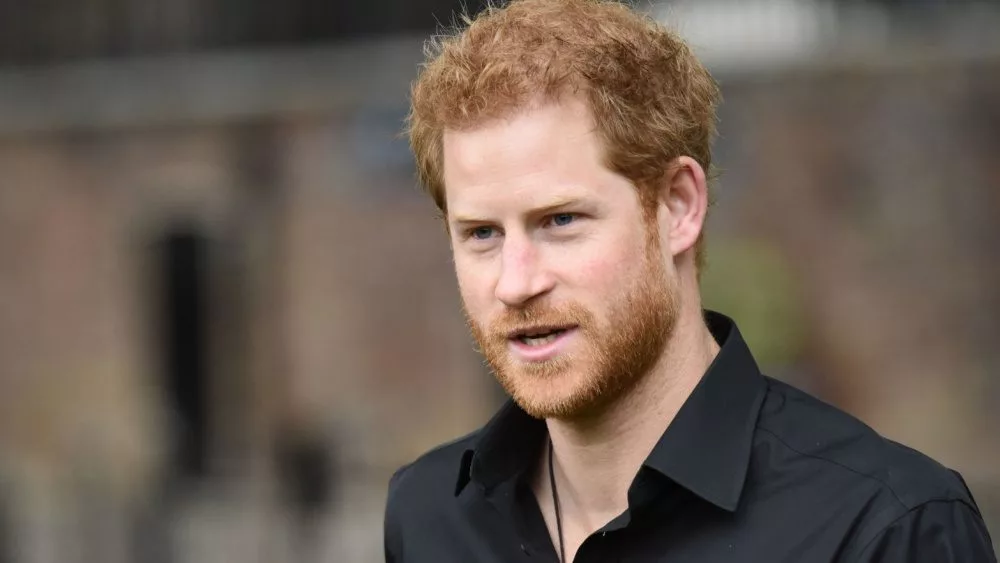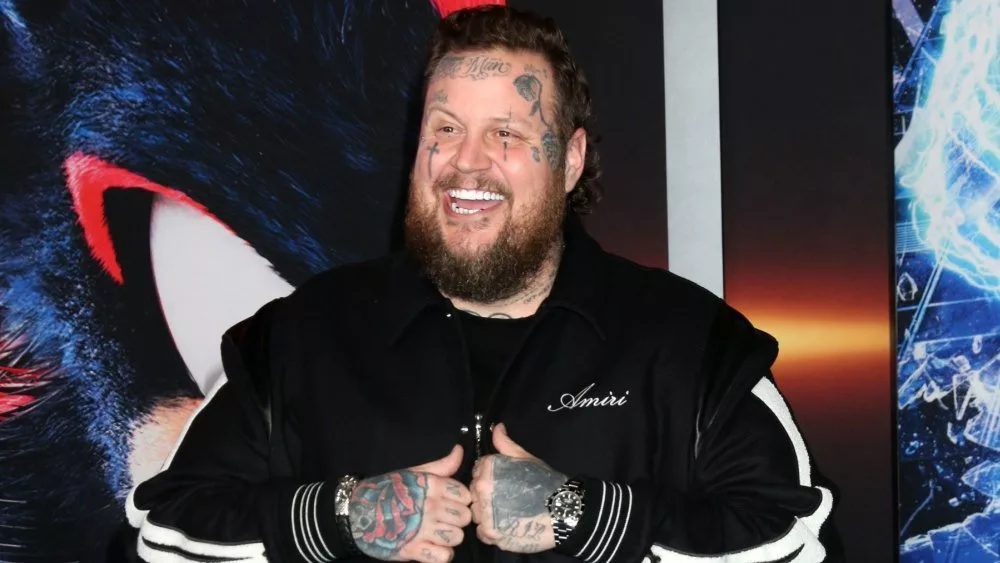ISTANBUL, Turkey — The head of the Russian delegation in talks with Ukraine says that Moscow sees the latest meeting as a step toward compromise.
Vladimir Medinskiy said on Russian RT television that Russia sees Ukrainian proposals made Tuesday during the talks in Istanbul as a “step to meet us halfway, a clearly positive fact.”
He added that the two parties have a long way to go to reach an agreement.
Medinsky said that Russia made “two big steps toward peace” during the talks, first by agreeing to reduce military activities around the Ukrainian capital of Kyiv and the northern city of Chernihiv.
He said Russia agreed to a prospective meeting between Russian President Vladimir Putin and
Ukrainian President Volodymyr Zelenskyy once a prospective peace treaty is ready for signing.
The Ukrainian delegation earlier Tuesday said it had laid out a possible framework for a future peace deal based on legally binding security guarantees that would provide for other countries to intervene if Ukraine is attacked.
OTHER DEVELOPMENTS:
THE HAGUE, Netherlands — In what appeared to be a coordinated action to tackle Russian espionage, at least four European allies expelled a total of dozens of Russian diplomats on Tuesday.
The expulsions come against a backdrop of relations between Russia and the West that have been plunged into a deep freeze following Moscow’s invasion of Ukraine.
The Netherlands said it was expelling 17 Russians who it described as intelligence officers masquerading as diplomats. Belgium said it was ejecting 21 Russians. The Czech Republic gave one Russian diplomat 72 hours to leave the country. Ireland told four senior Russian officials to leave the country because of activities deemed not “in accordance with international standards of diplomatic behaviour.”
Poland last week expelled 45 Russians whom the government identified as intelligence officers using their diplomatic status as cover to operate in the country.
___
BRUSSELS — Belgium has decided to expel 21 Russian diplomats for activities related to espionage or unlawful influence peddling.
The diplomats were given two weeks to leave the country, foreign affairs spokeswoman Elke Pattyn told The Associated Press on Tuesday.
___
THE HAGUE, Netherlands — The Dutch government says it is expelling 17 Russian intelligence officers, calling their presence a “threat to national security.”
The foreign ministry said that the Russian ambassador was summoned Tuesday and told the officers, who were accredited as diplomats, are to be removed from the country.
The ministry says it took the decision on national security grounds.
It says that the “intelligence threat against the Netherlands remains high. The current attitude of Russia in a broader sense makes the presence of these intelligence officers undesirable.”
The government said it took the decision in consultation with “a number of like-minded countries,” citing similar expulsions by the United States, Poland, Bulgaria, Slovakia, Estonia, Latvia, Lithuania and Montenegro.
___
ISTANBUL — Turkey’s foreign minister says Russian and Ukrainian negotiators have reached “a consensus and common understanding” on some issues.
Mevlut Cavusoglu said the two sides made “the most meaningful progress” since the start of the negotiations at a meeting in Istanbul on Tuesday. He said the meeting would be followed by a meeting between the Russian and Ukrainian foreign ministers.
Cavusoglu said a meeting between the Russian and Ukrainian leaders was also “on the agenda,” he said. He didn’t give a timeframe.
He said that difficult issues “will be taken up at a higher level.”
Cavusoglu added that Turkey encouraged the two sides to “secure a cease-fire” and an agreement on the issue of the opening of humanitarian corridors.
___
ISTANBUL — The Ukrainian delegation to talks with Russia has laid out a possible framework for a future peace deal based on legally binding security guarantees that would provide for other countries to intervene if it is attacked.
Delegate Oleksandr Chaly said Tuesday that the guarantees should be similar in character to NATO’s Article 5, which pledges members of the alliance to defend each other in case one is attacked.
The delegation said Ukraine is prepared to pledge to be neutral, not to host foreign military forces and to hold talks over the next 15 years on the future of the Crimean Peninsula, which Russia annexed in 2014.
Delegate David Arakhamia said there would be a peace deal which would be secured by a referendum in Ukraine. That would take place only after all foreign troops have left.
Russia’s views on the proposal were not immediately clear.
___
ISTANBUL — Russia’s deputy defense minister says that Moscow has decided to “fundamentally … cut back” operations near the Ukrainian capital and another major city to “increase mutual trust” at talks aimed at ending the fighting.
Alexander Fomin said Russian forces would cut back “military activity in the direction of Kyiv and Chernihiv.”
Fomin’s statement comes Tuesday after another round of talks Russia and Ukraine held in Istanbul and appears to be the first major concession the Russians made since the beginning of their invasion in Ukraine more than a month ago.
The Ukrainian military’s general staff said earlier it had noted withdrawals around Kyiv and Chernihiv.
___
GENEVA — The head of the International Federation of Red Cross and Red Crescent Societies says an estimated 18 million people in Ukraine will need humanitarian aid amid the devastation and displacement after Russia’s invasion.
IFRC president Francesco Rocca says the Ukrainian Red Cross has reached 400,000 people with items like food, bedding, blankets, tents and water since the invasion on Feb. 24. Ukraine’s pre-war population was 44 million.
He told reporters at a U.N. briefing in Geneva Tuesday that “no one in Ukraine is left unscathed by the ongoing conflict.”
At the same briefing, spokesman Ewan Watson of the International Committee of the Red Cross – a sister organization which focuses on conflict and the rules of war — said “time is running out” for civilians in Mariupol and other frontline areas that have recently been unable to receive humanitarian aid.
The World Health Organization representative in Ukraine, Dr. Jarno Habicht said the U.N. health agency has tallied 74 attacks on health care – including medical facilities, ambulances and health workers – that have killed 72 people so far in the conflict.
___
WARSAW, Poland – Alphabet and Google CEO Sundar Pichai has met with Polish Prime Minister Mateusz Morawiecki to offer support and humanitarian aid for the people of Ukraine.
Pichai and Morawiecki also held a remote meeting with the Slovenia Prime Minister Janez Jansa and a representative of Czech Prime Minister Petr Fiala.
In addition, Pichai also met with Polish humanitarian organizations and Ukrainian startups. Poland has been the largest single destination for refugees fleeing Ukraine.
___
COPENHAGEN, Denmark — Ukrainian President Volodymyr Zelenskyy says seven people were killed in a missile strike on the regional government headquarters in the southern city of Mykolayiv.
Zelenskyy, who spoke to the Danish parliament through a translator, said Tuesday’s strike also left 22 people injured. The Telegram channel of regional governor Vitaliy Kim showed a gaping hole in the center of the nine-story building.
Kim accused Russian forces of waiting until people had arrived for work in the building before striking it and said he had a lucky escape because he had overslept.
Zelenskyy has made online speeches to lawmakers in several countries, including the United States, Britain, Sweden, Germany, Canada, Israel, Japan and the European Union.
He is set to address Norway’s parliament on Wednesday. He told the Danish parliament that “the brutality is more violent than what we have seen during World War II.”
___
MOSCOW — Russia has expelled a total of 10 diplomats from the three Baltic states of Estonia, Latvia and Lithuania in retaliation for those countries expelling Russian diplomats earlier this month.
The Russian Foreign Ministry said it was cancelling the accreditation of four Lithuanian diplomats, three Latvians and three Estonians and they would be required to leave the country. That corresponds to the number of Russian diplomats each country previously expelled.
On March 18, the three Baltic countries ordered the expulsion of 10 Russian embassy staff members in a coordinated action taken in solidarity with Ukraine.
Russia said Tuesday that move was “provocative and entirely baseless” and that it had summoned the Estonian, Latvian and Lithuanian ambassadors in Moscow for an official protest.
___
NEW YORK — Kremlin spokesman Dmitry Peskov has rejected reports that Russian billionaire Roman Abramovich may have been poisoned as part of an “information war.”
The investigative news outlet Bellingcat reported Monday that Abramovich and two Ukrainian delegates suffered symptoms of poisoning after attending talks between Russia and Ukraine on March 3.
Peskov said Tuesday that Abramovich has been “ensuring certain contacts between the Russian and Ukrainian sides” but is not an official member of the Russian delegation. He said that Abramovich’s role has been approved by both sides.
He said of the reports that Abramovich may have been poisoned: “It’s part of the information war. These reports obviously do not correspond to reality.”
___
BUDAPEST, Hungary — A planned meeting in Hungary of central European defense ministers has been cancelled amid regional disagreements over the response to Russia’s war in Ukraine.
The meeting was due to be held Wednesday. Hungary’s defense ministry said Tuesday that the meeting of ministers from the Visegrad alliance of Hungary, Slovakia, the Czech Republic and Poland would “be held at a later date.”
The cancellation came after the defense ministers of both the Czech Republic and Poland indicated they wouldn’t attend.
Leaders from both countries have criticized Hungary’s response to the war in Ukraine, pointing out that Prime Minister Viktor Orban’s right-wing government has refused to supply its embattled neighbor with weapons and lobbied against sanctions on Russian energy imports.
___
MOSCOW — Russia’s defense minister says that “liberating” the Donbas region in eastern Ukraine is the main goal of Moscow’s military operation, underlining a possible shift in strategy announced last week by another Russian military official.
Defense Minister Sergei Shoigu, whose few public appearances this month raised questions about his health and whereabouts, held a meeting with top military officials on Tuesday and said that “overall, the main tasks of the first stage of the operation have been completed.”
He said that “the combat potential of the Ukrainian armed forces has been significantly reduced, which makes it possible to focus the main attention and main efforts on achieving the main goal — the liberation of Donbas.”
The minister stressed that the Russian military will continue the operation until “the set goals are achieved.”
Shoigu also offered an assurance that Russia will not send conscripts recruited in the upcoming April draft to Ukraine. Earlier this month, the Russian military admitted that a number of conscripts ended up in Ukraine and were even captured there.
___
DUBAI, United Arab Emirates — The International Monetary Fund’s chief says the global lender “has no problems with Russia” and that its board can only suspend the country if the fund’s membership says it no longer recognizes the government.
“That is a very tall order,” IMF Managing Director Kristalina Georgieva said Tuesday in response to a question about consequences against Russia over its war in Ukraine.
She added that “we all know for this war to end there has to be dialogue.” Georgieva spoke at the World Government Summit in Dubai.
The fund approved emergency financing of $1.4 billion for Ukraine on March 10. That’s in addition to a disbursement of $700 million to the country before the war, which was launched by Russia on Feb. 24.
The IMF has said it expects “a bad recession in Russia” and spillover impact on neighboring countries. The IMF says its Moscow office is not actively operating.
___
ISTANBUL — An adviser to Ukrainian President Volodymyr Zelenskyy says the talks under way with Russia in Istanbul are focusing on security guarantees for Ukraine and hopes of a cease-fire.
Mykhailo Podolyak told Ukrainian media on Tuesday that there are “intensive consultations going on regarding several important issues, the key among those is an agreement on international security guarantees for Ukraine.” He said that “only with this agreement can we end the war in a way that Ukraine needs.”
He adds that “the second block of issues is a cease-fire so that we could resolve all the humanitarian problems which have piled up and which require urgent resolutions.”
Podolyak added the two sides were also discussing breaches of the rules of war.
___
MOSCOW — The Russian Foreign Ministry says the United States and its allies are involved in hacking Russian data and infrastructure.
The Foreign Ministry said in a statement Tuesday that “the U.S. and its satellites are undertaking a massive cyber-operation against our country.” It also said the U.S. and other NATO members had trained Ukrainian hackers and blamed what it said was an effort by Ukraine to recruit international hackers.
The ministry said that the attacks include stealing Russians’ personal data, putting pressure on the economy and spreading “fake information” about the Russian military.
Russia says it is strengthening its own cyber-security and will seek to bring hackers to justice.
___
LONDON — Britain’s Foreign Office says it is concerned about reports that Russian billionaire Roman Abramovich may have been poisoned as he participated in negotiations between Russia and Ukraine.
The investigative news outlet Bellingcat reported Monday that Abramovich and two Ukrainian delegates suffered symptoms of poisoning after attending talks on March 3. Abramovich, whose exact role in the talks hasn’t been confirmed, has now recovered.
The Foreign Office said in a statement Tuesday that “the allegations are very concerning.”
A Bellingcat investigator said the dosage wasn’t lethal and the “most plausible” explanation for the alleged attack is that it was a warning to Abramovich and any other wealthy Russians who might seek to intervene in the negotiations.
“He volunteered to play … this role of (an) honest broker, but other oligarchs had … declared certain independence from the Kremlin position and criticize the war,” Christo Grozev told Times Radio. “So it could well be seen as a warning sign to them to not join the ranks of those who dissent, and to not be too much of an honest broker.”
Abramovich, owner of London soccer club Chelsea, had his British assets frozen by the U.K. government earlier this month as authorities targeted wealthy Russians with close ties to the Kremlin. Those sanctions also cover Chelsea, limiting ticket sales and spending by the club.
Asked about the alleged poisoning and Abramovich’s role in the negotations, a spokesperson for him declined to comment.
___
VILNIUS, Lithuania — Lawmakers in Lithuania are debating a ban on using the ‘Z’ symbol to show support for Russia’s attack on Ukraine.
Russian troops in Ukraine have painted the letter Z on the side of vehicles and it has been adopted by some in Russia as a symbol of support for what the Kremlin describes as a “special military operation.”
Lithuania, which already has outlawed Soviet and Nazi symbols, also wants to ban the black-and-orange ribbon that was originally a military decoration is now used as a of remembrance of the Soviet victory over Nazi Germany.
Lawmaker Monika Osmianskiene said the symbols “are becoming a symbol not only of propaganda but also of aggression.
A vote in Lithuania’s parliament is expected this week. If it passes, people who violate a ban could face a fine of up to 500 euros ($550).
___
HELSINKI — Finland’s main intelligence agency warns that Russia is likely to carry out cyber and information operations against the Nordic country in the coming months as the government and lawmakers debate possible NATO membership.
The Finnish Security and Intelligence Service said in its annual report published Tuesday that it considers “unlawful intelligence operations of Russia” to be among the main current threats to Finland’s national security.
Director Antti Pelttari said that “Finnish society as a whole should be prepared for various measures from Russia seeking to influence policymaking in Finland on the NATO issue.”
Several polls in recent weeks have shown a majority of Finns now supporting NATO membership, up from 25% at most before the Russian invasion of Ukraine. Finland shares the longest border of any European Union member with Russia.
Moscow has said it would consider Finland and neighboring Sweden joining NATO a hostile move that would have serious military and political repercussions.
Original Story
KYIV, Ukraine (AP) — Russia’s military says it will “fundamentally” cut back operations near Ukraine’s capital and a northern city, as talks brought a possible deal to end a grinding war into view.
Russia’s deputy defense minister said Tuesday that the move was meant to increase trust in the talks after several rounds of failed negotiations to halt the conflict.
That apparent goodwill gesture comes as Russia’s troops have become bogged down and struggled to make major advances on the ground recently in the face of stiff Ukrainian resistance.
Ukraine’s military said it had noted withdrawals around Kyiv and Chernihiv, though the Pentagon said it could not corroborate Russia’s claim.







